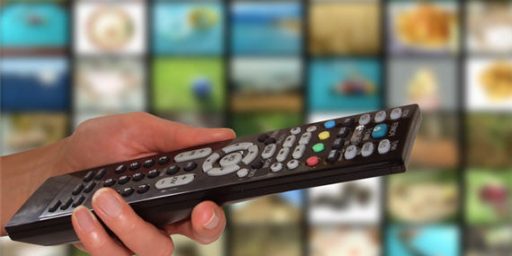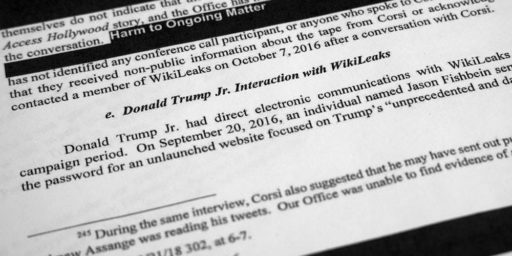FILE SWAPPING
A federal judge has ruled that companies that produce file swapping software are not legally liable for copyright violations by end users.
“Grokster and Streamcast are not significantly different from companies that sell home video recorders or copy machines, both of which can be and are used to infringe copyrights.”
While I think he’s right, I suspect the decision will be overturned on appeal. Frankly, while it is true that there is a legitimate use for file sharing software, the predominant purpose is transfer of copywrited material. That’s not the case with the VCR, which is almost entirely about time shifting broadcast programming or viewing rented movies.
(Hat tip: Drudge)






I think the only way your argument makes sense is if there were some magic way to prevent file sharers from sharing copyrighted material. There isn’t and never will be. We’ll just have to learn to live with the reality, and trust to people to be basically honest.
For that matter, an awful lot of people I know use CD burners (and previously cassette tape recorders) to exchange copyrighted material. I know very few people that use(d) either device for its intended purpose, in fact. That doesn’t imply that they should be made illegal; they both have useful purposes. As does file sharing.
The other argument is that webservers easily fall into the “file sharing software” arena–they can and are routinely used to illegally distribute copyrighted material. The only substantial difference between a webserver and something like Grokster is ease of installation and use; Apache could be adapted to do the same file-sharing sorts of things without much effort.
So let’s just ban computers, shall we?
Caveat: I don’t use file sharing software or own/possess any pirated software or music.
42SSD: I agree that it is a problem that’s virtually unsolvable, although the Napster and AudioGalaxy suits put quite a damper on it. But CD burners are mainly used, I’d guess, to play CDs people bought (audio or CDROM) and as a file storage medium. Probably very few people over the age of 25 have ever used them to make illegal copies of music. (Remember, making a backup for the car, for example, is “fair use.”)
I’ve used file swapping software and have pirated music on my computer at home and have even burned CDs for the car. But if the courts rule the software illegal and I can’t do it anymore, I’ll understand.
My hope is the industry gets a clue and figures a way to make money on file transfers. That would be the best solution.
Heh. I would not assume such things about people over 25. In my small part of the world, I’d guess that at least 75% of my students (adults, mostly over the age of 40) know about file swapping based on the questions they ask me about it.
Anyway, the quick point I was going to make is that if P2P software could only be used to trade audio and music files, then I could see a problem with the software. However, most of those applications can trade any type of file and I think it is incorrect to assume that they would be used to commit piracy.
Also, I disagree with your analysis of the VHS.
Joy,
Interesting. Heck, my dad, 59, does more of this sort of thing than I do nowadays.
What is your view of VHS? I know you can dupe movies and such, but even that is within the bounds of fair use if you’re just keeping a library copy of something you copy off HBO or whatnot. Your experience is that people are doing mass copying and sharing with strangers ala P2P? Or what?
Well, my experience is that P2P file sharing is here to stay. Usually, I will have students in class (and because of the typical age of my students, they have kids and/or grandkids) who know nothing about computers or operating systems or anything but AOL, but do know that their progeny can “get music from the Internet”. During my consulting, I see p2p file sharing software on at least 95% of the machines I service. Especially for people with broadband connections and/or college age kids. Also, most people seem not to rip music themselves, it’s mostly they are sharing the stuff they have already downloaded. Yes, it’s that prevalent. And most people who I talk to don’t find anything wrong with it.
(But the stupid thing is that these same people don’t realize that if you install the software onto your machine, there are noted security problems.)
Also, a very popular question I often am asked is “How do you make audio CD’s?” (Because what happens is if you burn .mp3 files to CD, most existing cd players cannot natively play the .mp3 format.)
Hehe. Our parents are the same age.
—